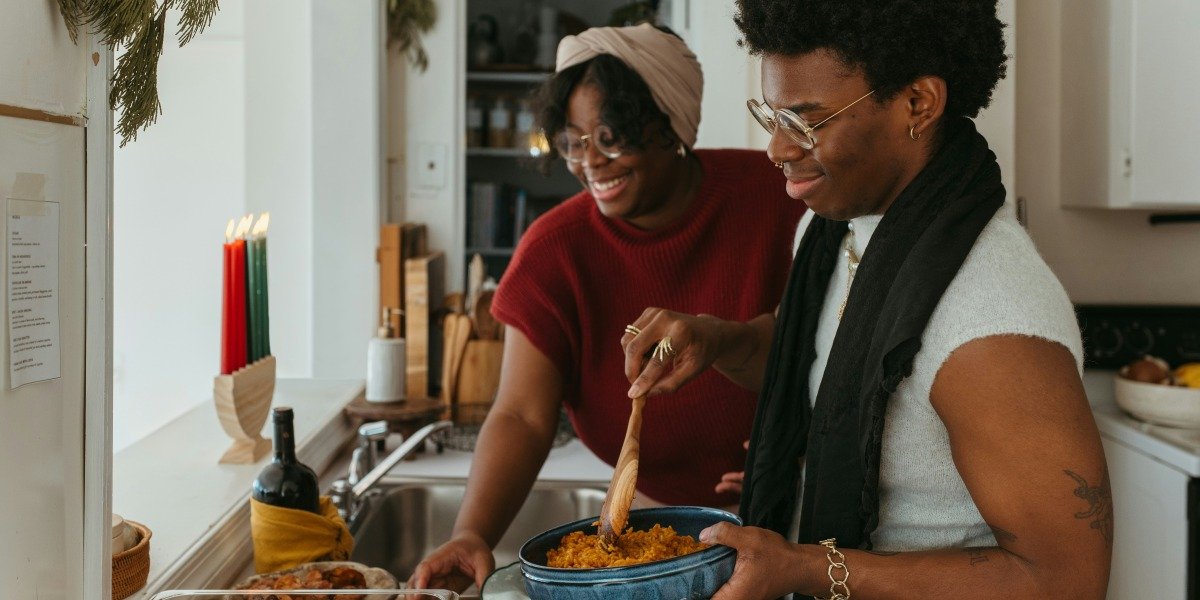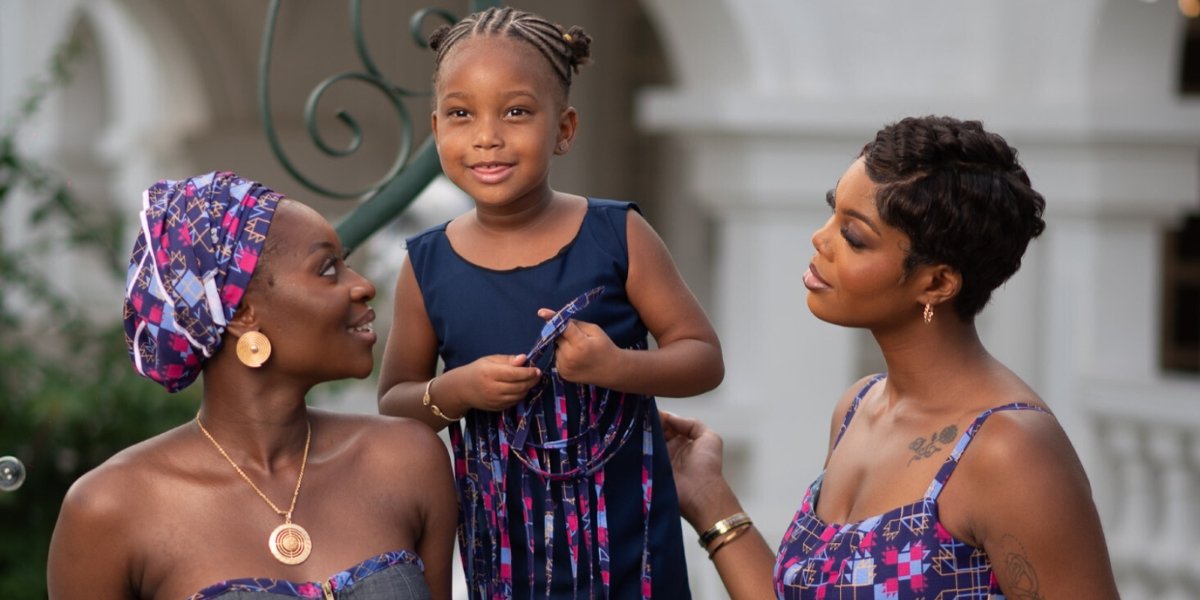Family has always been a central element of the Black experience, serving as a pillar of support, resilience, and connection across generations. The concept of Black family togetherness is not just about the nuclear family; it’s about the broad, diverse network of kinship, chosen family, and communal bonds that have shaped the Black community throughout history. We explore the richness of Black family structures, traditions, and values, emphasizing the importance of togetherness in both everyday life and during pivotal moments.
Read Also: Why the Afro is More Than Just a Hairstyle for Black People
Black families have always found ways to adapt and thrive, even in the face of adversity. From historical struggles such as slavery and segregation to contemporary challenges, the strength of Black family networks has played a critical role in preserving identity, fostering cultural heritage, and creating spaces for mutual support. This exploration highlights how Black family togetherness remains vital for nurturing identity, fostering belonging, and strengthening community bonds.
The History and Significance of Black Family Togetherness
Throughout history, Black families have been forced to adapt to the changing social, political, and economic landscapes. Despite facing systemic challenges, such as the enslavement of ancestors and the impact of segregation, Black families have maintained deep connections and found ways to survive and thrive. These connections are often woven together through shared experiences, cultural practices, and a collective commitment to each other’s well-being.
Historical Roots of Black Family Bonds
The strength of Black family togetherness can be traced back to African traditions brought over by enslaved ancestors. Despite the horrors of slavery, Black families remained committed to preserving familial bonds and cultural practices. Even in the face of separation through forced migration and the breaking up of families on plantations, the spirit of familial love and solidarity endured.
As the Black community fought for civil rights and equal treatment, family became a place of refuge, strength, and collective action. The Great Migration saw many Black families move from the South to the North in search of better opportunities, but the essence of family remained anchored in mutual support and kinship.
The Diverse Structures of Black Families
The Black family is not a monolithic structure—it is diverse and fluid, encompassing a wide range of configurations and experiences. From extended family networks to chosen families and communal ties, Black families have consistently prioritized the well-being of all members, whether biological or not.
1. The Nuclear Family and Beyond
The nuclear family—parents and children—remains a central component of Black family life, but it is often supplemented by extended family members who play key roles in a person’s upbringing. Grandparents, aunts, uncles, cousins, and even close family friends often have significant influence in the lives of children, providing wisdom, guidance, and love.
The Role of Extended Family:
In Black families, extended family members are often seen as equally important as the nuclear family. These relationships foster a sense of community and ensure that children grow up in an environment rich in wisdom and cultural knowledge. Grandparents, for example, are frequently seen as vital transmitters of family history and cultural traditions, offering lessons in resilience and African American history.
2. Chosen Family
For many, especially those who have been marginalized, the concept of chosen family—people who are not related by blood but who share strong bonds of love and support—has been crucial. This structure is particularly important in the Black community, where kinship ties often extend beyond the biological and into deep friendships and community connections.
The Importance of Chosen Family:
Chosen family creates a supportive network that goes beyond the limitations of traditional family roles. This type of family dynamic has allowed Black individuals to build and strengthen communal bonds, providing emotional and social support, especially in times of need.
3. Blended Families
As with families of all backgrounds, blended families are a common structure within the Black community. These families, formed through remarriages and the merging of different family units, reflect the adaptability and unity that Black families embody. The blending of families helps foster a sense of community and togetherness, with love and support extending across familial boundaries.
Traditions, Rituals, and Cultural Heritage
The foundation of Black family togetherness is built upon shared values, rituals, and traditions that prioritize community, mutual respect, and collective well-being. From the celebration of milestones to the sharing of cultural practices, Black families continue to nurture strong bonds through these time-honored practices.
1. Celebrating Milestones and Achievements
Milestones such as birthdays, weddings, graduations, and family reunions are significant events in Black families. These celebrations serve as a way to honor the past, acknowledge achievements, and reinforce familial bonds.
Family reunions, in particular, are often huge events that bring together extended family members from different generations, reinforcing the importance of kinship and continuity. These gatherings provide opportunities to share stories, pass down traditions, and strengthen ties between family members.
2. Storytelling and Intergenerational Wisdom
One of the most powerful aspects of Black family togetherness is the tradition of storytelling. This ritual is a way to pass on wisdom, family history, and lessons learned from past generations. Elders, particularly grandparents, are often the primary storytellers, imparting valuable knowledge about the family’s roots, the challenges they have overcome, and the importance of maintaining cultural identity.
The Role of Oral Tradition:
In the Black community, oral tradition is essential for preserving cultural heritage. It allows for the transmission of historical knowledge and personal narratives that might otherwise be lost, providing a sense of continuity and connection across generations.
3. Faith and Spirituality
Faith plays a central role in many Black families. Church services, prayer gatherings, and spiritual rituals offer a space for collective reflection, strength, and mutual support. These practices help build resilience and provide a framework for navigating life’s challenges.
The Resilience and Strength of Black Families
The resilience of Black families is deeply rooted in their ability to adapt, survive, and thrive despite facing systemic challenges. The strength found in these family networks is a reflection of the larger community’s commitment to solidarity, self-determination, and self-preservation.
The Power of Collective Support:
The collective support Black families provide for one another is unparalleled. From emotional and financial assistance to providing a safe space for expression, Black families nurture their members’ growth and well-being. This support system is a cornerstone of strength in the face of adversity, helping individuals and families overcome challenges while maintaining a sense of unity and purpose.
Read Also: The Path to a Smoke-Free Future: Preventing Lung Diseases in Young Adults
The Enduring Legacy of Black Family Togetherness
Black family togetherness is an ever-evolving concept that reflects both the unique history of the Black community and the ongoing struggle for identity, belonging, and connection. Whether through extended family networks, chosen family, or the wisdom passed down through generations, Black families continue to create and uphold traditions that foster love, resilience, and support.
As we celebrate the strength of Black families, it’s essential to recognize the diversity of experiences within this broad concept, acknowledging the profound ways in which family and community sustain individuals, nurture identity, and shape the collective future of the Black community.








